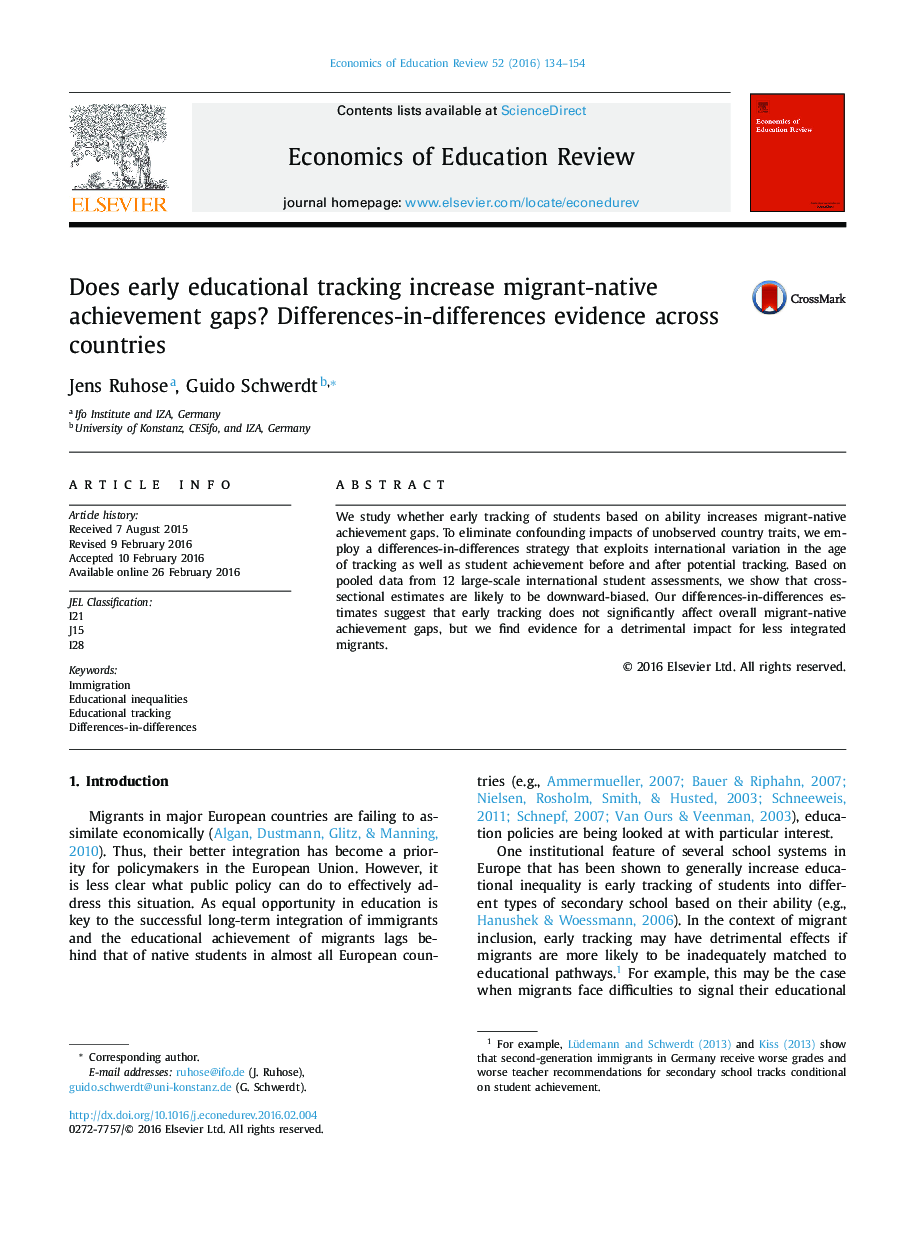| Article ID | Journal | Published Year | Pages | File Type |
|---|---|---|---|---|
| 354259 | Economics of Education Review | 2016 | 21 Pages |
•Early ability-based tracking into differentsecondary school types is suspected to increase migrant-native achievement gaps.•Cross-sectional estimates reveal differences in migrant-native test score gaps between early and late tracking countries.•We document that differences in migrant-native test score gaps exist already prior to tracking.•Differences-in-differences estimates show that early tracking does not significantly affect overall migrant-native achievement gaps.•We find, however, evidence for a detrimental impact of early tracking for less integrated migrants.
We study whether early tracking of students based on ability increases migrant-native achievement gaps. To eliminate confounding impacts of unobserved country traits, we employ a differences-in-differences strategy that exploits international variation in the age of tracking as well as student achievement before and after potential tracking. Based on pooled data from 12 large-scale international student assessments, we show that cross-sectional estimates are likely to be downward-biased. Our differences-in-differences estimates suggest that early tracking does not significantly affect overall migrant-native achievement gaps, but we find evidence for a detrimental impact for less integrated migrants.
